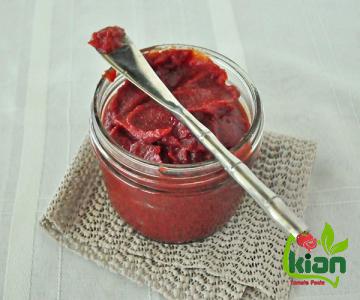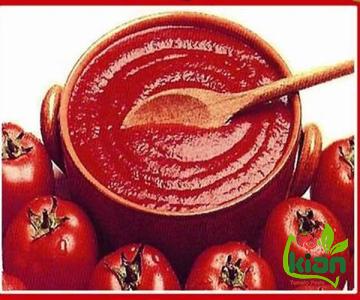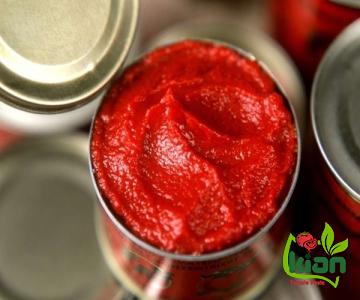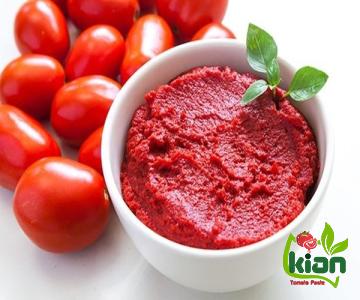Tomato paste is a versatile and widely used ingredient in various cuisines around the world. Its rich and concentrated flavor adds depth and vibrant color to sauces, soups, and stews. However, on some unfortunate occasions, tomato paste may exhibit an unexpected bitter taste. In this article, we will delve into the potential causes behind this bitter taste and offer some valuable solutions. Causes of Bitter Taste in Tomato Paste 1. Underripe Tomatoes: The bitterness in tomato paste can often be traced back to the quality of the tomatoes used during the production process. Underripe tomatoes contain higher amounts of certain compounds, such as alkaloids and tannins, which can contribute to the bitter taste.

.
 2. Overcooking: Prolonged exposure to high heat during the cooking and evaporation process can cause the natural sugars in tomatoes to caramelize excessively. This excessive browning can lead to a bitter taste in the resulting tomato paste. 3. Enzymatic Reactions: The presence of certain enzymes, such as polyphenol oxidase, in tomatoes can trigger enzymatic reactions that produce bitter compounds. These reactions can be accelerated by factors such as extended storage time or improper processing methods. 4. Inadequate Processing: In certain cases, bitter taste may result from the presence of additives, preservatives, or low-quality ingredients used during the manufacturing process. Contamination or poor handling practices can also contribute to the bitter taste.
2. Overcooking: Prolonged exposure to high heat during the cooking and evaporation process can cause the natural sugars in tomatoes to caramelize excessively. This excessive browning can lead to a bitter taste in the resulting tomato paste. 3. Enzymatic Reactions: The presence of certain enzymes, such as polyphenol oxidase, in tomatoes can trigger enzymatic reactions that produce bitter compounds. These reactions can be accelerated by factors such as extended storage time or improper processing methods. 4. Inadequate Processing: In certain cases, bitter taste may result from the presence of additives, preservatives, or low-quality ingredients used during the manufacturing process. Contamination or poor handling practices can also contribute to the bitter taste.
..
 Solutions to Combat Bitterness in Tomato Paste 1. Ripe and High-Quality Tomatoes: Choosing ripe and high-quality tomatoes with balanced acidity and sweetness is crucial for producing tomato paste that is free from bitterness. This ensures that the natural sugars are at their optimum level, diluting the bitter compounds. 2. Gentle Cooking: Proper control of cooking time and temperature is essential to prevent overcooking and excessive caramelization. By employing gentle and precise heat, the natural sugars in tomatoes can be preserved, resulting in a sweeter tomato paste. 3. Enzyme Inactivation: Employing techniques such as blanching or applying heat treatments can help inactivate the enzymes responsible for bitterness. These methods halt the enzymatic reactions, allowing the tomato paste to maintain its desired taste.
Solutions to Combat Bitterness in Tomato Paste 1. Ripe and High-Quality Tomatoes: Choosing ripe and high-quality tomatoes with balanced acidity and sweetness is crucial for producing tomato paste that is free from bitterness. This ensures that the natural sugars are at their optimum level, diluting the bitter compounds. 2. Gentle Cooking: Proper control of cooking time and temperature is essential to prevent overcooking and excessive caramelization. By employing gentle and precise heat, the natural sugars in tomatoes can be preserved, resulting in a sweeter tomato paste. 3. Enzyme Inactivation: Employing techniques such as blanching or applying heat treatments can help inactivate the enzymes responsible for bitterness. These methods halt the enzymatic reactions, allowing the tomato paste to maintain its desired taste.
…
 4. Quality Control and Processing: Implementing strict quality control measures throughout the entire production process can eliminate the risk of contaminants or low-quality ingredients. Proper handling, hygiene, and processing techniques are essential to maintain the integrity and flavor of the tomato paste. Conclusion Bitterness in tomato paste, while occasionally encountered, can be addressed through careful selection of ripe and high-quality tomatoes, precise cooking techniques, and stringent quality control measures. By recognizing the potential causes and implementing the recommended solutions, manufacturers can ensure that their tomato paste delights consumers with its desirable sweet and savory flavors.
4. Quality Control and Processing: Implementing strict quality control measures throughout the entire production process can eliminate the risk of contaminants or low-quality ingredients. Proper handling, hygiene, and processing techniques are essential to maintain the integrity and flavor of the tomato paste. Conclusion Bitterness in tomato paste, while occasionally encountered, can be addressed through careful selection of ripe and high-quality tomatoes, precise cooking techniques, and stringent quality control measures. By recognizing the potential causes and implementing the recommended solutions, manufacturers can ensure that their tomato paste delights consumers with its desirable sweet and savory flavors.











Your comment submitted.